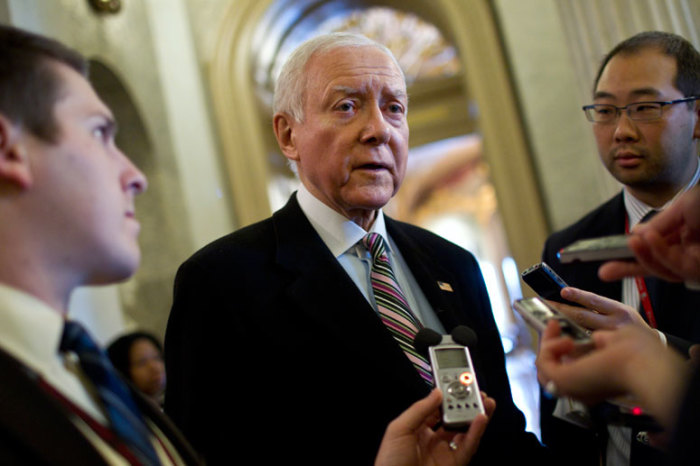Orrin hatch, GOP senator who cosponsored Religious Freedom Restoration Act, dies at 88

Orrin Hatch, the long-serving conservative Republican senator from Utah who co-sponsored the Religious Freedom Restoration Act back in the 1990s, has died at age 88.
The Orrin Hatch Foundation, a nonprofit that advocates for political civility and bipartisan policies, announced that Hatch had passed away on Saturday evening.
A. Scott Anderson, chairman of the Hatch Foundation, said in the announcement that he considered Hatch a “man of wisdom, kindness, character, and compassion.”
“He exemplified a generation of lawmakers brought up on the principles of comity and compromise, and he embodied those principles better than anyone,” stated Anderson.
“In a nation divided, Orrin Hatch helped show us a better way by forging meaningful friendships on both sides of the aisle. Today, more than ever, we would do well to follow his example.”
Democrat President Joe Biden, who served alongside Hatch in the U.S. Senate for several years, gave his condolences in an official statement released Sunday.
“I saw that energetic, sharp-elbowed Orrin in the many battles we had over tax policy, the right of workers to join a union, and many others,” said Biden.
“At the same time, Senator Hatch was also a man of deep faith; a gentle soul who wrote songs and poems, and shared them with friends, colleagues, and the world. This was the Orrin who looked out for the people who often didn’t have a voice in our laws and our country.”
Biden also recalled working alongside Hatch on federal legislation such as the Americans with Disabilities Act and the Children’s Health Insurance Program.
“He was, quite simply, an American original,” he continued. “Jill and I send our deepest sympathies to Elaine, and all of the Hatch children, grandchildren, and great-grandchildren.”
Born in 1934 and a member of the Church of Jesus Christ of Latter-day Saints, Hatch represented Utah in the Senate from 1976 to 2019, the longest in the state’s history.
In 1993, Hatch cosponsored the Religious Freedom Restoration Act alongside Democrat Senator Ted Kennedy of Massachusetts; the legislation passed in a vote of 97-3 and President Bill Clinton signed it into law.
In the years since, RFRA has often been cited in religious liberty cases at the U.S. Supreme Court, including when charities and businesses have sought exemptions to controversial policies like being compelled to pay for birth control coverage or forced to work at or provide services for same-sex weddings.
In an interview with The Christian Post in 2014, Hatch explained that corporations were meant to also have legal protection under RFRA, and that it did not apply only to individuals.
"[RFRA was] meant to protect everybody and businesses are important as well. If we can impose corrupt or wrong rules on businesses, that would spread corrupt or wrong rules throughout the country," said Hatch. "Business should have to live up to these principles and we ought to respect businesses that do."
In addition to RFRA, Hatch also championed the International Religious Freedom Act in 1998 and the Religious Land Use and Institutionalized Persons Act in 2000.
For these and other efforts to advance religious freedom, Becket Fund, a law firm that has argued religious liberty cases at the Supreme Court, honored Hatch in 2021 with its Canterbury Medal.
“I am proud to have preserved religious freedom for people of all faiths through legislation such as RFRA, which is needed today more than ever,” said Hatch in remarks last year.
“Religious freedom was sewn into the very fabric of this country from the beginning, and protecting the right of conscience for every American is essential to the future of our republic.”




























